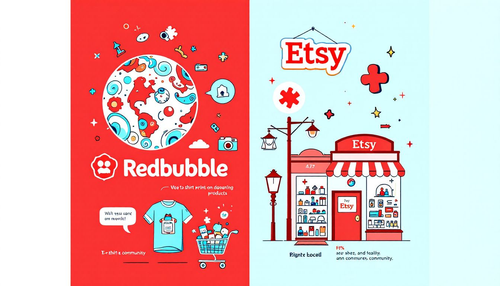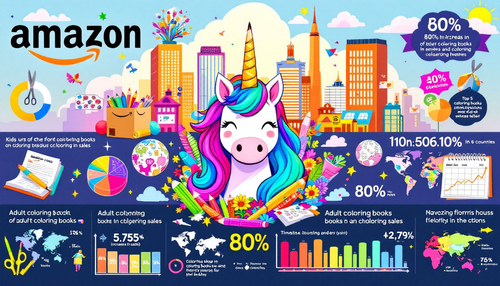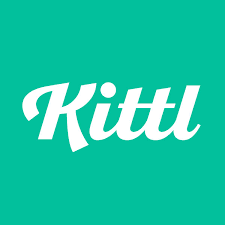
How to Become an Online Marketer: A Step-by-Step Guide to Mastering the Digital Landscape
Share
Embark on Your Journey to Online Marketing Success
In today's digital age, online marketing has become an indispensable force, driving businesses, brands, and individuals toward unprecedented levels of success. Whether you dream of building your own startup, contributing to a thriving company, or simply understanding the intricate workings of the digital world, mastering online marketing is a valuable endeavor. This comprehensive guide will serve as your roadmap, equipping you with the knowledge, skills, and strategies to navigate the dynamic world of online marketing and build a fulfilling career.
Step 1: Laying the Foundation - Understanding the Core Principles
Before delving into the complexities of specific online marketing tactics, it's crucial to establish a solid understanding of the fundamental principles that underpin this field. These core concepts will provide you with a framework for understanding how different strategies work together to achieve desired outcomes, making you a more effective and strategic marketer.

- Digital Marketing Channels: The digital landscape is vast, encompassing a multitude of channels through which you can reach your target audience. Familiarize yourself with the key players, including search engine optimization (SEO), social media marketing, email marketing, content marketing, pay-per-click (PPC) advertising, affiliate marketing, influencer marketing, and more. Understanding the unique characteristics and strengths of each channel will enable you to develop a well-rounded marketing strategy.
- Target Audience and Buyer Personas: At the heart of effective marketing lies a deep understanding of your target audience. Go beyond general demographics and create detailed buyer personas, capturing their needs, interests, pain points, online behavior, and purchase habits. This intimate knowledge will guide your marketing efforts, ensuring that your messages resonate with your ideal customers.
- The Marketing Funnel and Customer Journey: Every successful marketing campaign guides customers through a specific journey, from initial awareness to eventual purchase and beyond. Learn about the marketing funnel, a visual representation of this journey, encompassing stages like awareness, consideration, decision, action, and loyalty. Understanding how customers interact with your brand at each stage will help you tailor your marketing messages and strategies to maximize impact.
- Key Performance Indicators (KPIs): In the world of online marketing, it's crucial to track your progress and measure the effectiveness of your efforts. Identify the key performance indicators (KPIs) that align with your marketing goals. These metrics might include website traffic, conversion rates, lead generation, return on investment (ROI), customer engagement, social media reach, email open rates, and more. By regularly monitoring your KPIs, you can identify areas for improvement and optimize your campaigns for maximum impact.
- Analytics and Data: The insights gleaned from data are invaluable in the realm of online marketing. Develop proficiency in using analytics tools like Google Analytics, Facebook Insights, and other platforms to track website performance, analyze campaign results, understand customer behavior, and identify patterns and trends. This data-driven approach will empower you to make informed decisions and continuously improve your marketing strategies.
Step 2: Mastering the Essential Skills

To thrive in the dynamic world of online marketing, a diverse and robust skillset is essential. Develop proficiency in these critical areas:
- SEO (Search Engine Optimization): In the digital landscape, visibility is paramount. Learn the art of search engine optimization (SEO) to ensure that your website and content rank highly in search engine results pages (SERPs). Master techniques like keyword research, on-page optimization (including title tags, meta descriptions, headings, and image optimization), link building, technical SEO (optimizing website structure, speed, and mobile responsiveness), and content optimization. SEO is about understanding how search engines work, what they prioritize, and how to align your website and content with those priorities. This involves a deep understanding of algorithm updates, ranking factors, and best practices. You'll need to stay up-to-date on the ever-changing landscape of SEO and adapt your strategies accordingly.
- Content Marketing: Content is king in the online world. Develop your skills in creating valuable, engaging, and informative content that attracts, educates, and entertains your target audience. Master storytelling techniques, writing compelling copy, crafting high-quality visuals, and leveraging various content formats, including blog posts, articles, infographics, videos, podcasts, and social media updates. Content marketing is not just about creating content; it's about strategically distributing it across relevant channels to reach your desired audience. This requires understanding content strategy, audience segmentation, and channel optimization. It's about creating content that people actually want to read, watch, or listen to, and then promoting that content in a way that drives traffic and engagement.

- Social Media Marketing: Social media platforms have become essential tools for businesses and individuals alike. Master the art of engaging with your audience on various platforms, including Facebook, Instagram, Twitter, LinkedIn, Pinterest, TikTok, and others. Understand social media algorithms, develop effective content strategies, leverage social media advertising, engage in community management, and utilize social listening tools to track conversations and insights. Social media marketing is about building relationships with your audience, creating authentic connections, and fostering a sense of community. It's about understanding the nuances of each platform, the different types of content that perform well, and how to measure success in a way that aligns with your business goals.
- Email Marketing: Email marketing remains a powerful and cost-effective channel for building relationships, nurturing leads, and driving conversions. Build and nurture email lists, segment your audience based on interests and behaviors, design eye-catching email templates, automate email sequences, and measure email campaign performance using key metrics like open rates, click-through rates, and conversions. Develop a strong understanding of email marketing best practices to ensure deliverability and maximize engagement. Email marketing is about personalization, providing value, and building trust. It's about sending the right message to the right person at the right time, and using data to optimize your campaigns for maximum impact.
- PPC Advertising (Pay-Per-Click): Reach a wider audience and drive targeted traffic to your website through paid advertising platforms like Google Ads, Bing Ads, and social media advertising networks. Learn about keyword targeting, ad copywriting, landing page optimization, bidding strategies, and campaign tracking. Master the art of maximizing your return on investment (ROI) through effective PPC advertising campaigns. PPC advertising is about bidding on keywords, creating compelling ads, and optimizing your campaigns for conversions. It's about understanding the different types of PPC campaigns, the various targeting options, and how to track and measure performance to ensure that your advertising budget is spent wisely.
- Analytics and Reporting: Data is the lifeblood of successful online marketing. Develop strong analytical skills to interpret data, track campaign performance, identify trends and patterns, and generate reports that provide actionable insights. Be able to translate raw data into meaningful insights that inform strategic decisions and optimize your marketing efforts. Analytics is about understanding the numbers, identifying areas of improvement, and making data-driven decisions. It's about using tools like Google Analytics to track website traffic, user behavior, and conversion rates, and then using that data to improve your marketing strategies.

Step 3: Choosing Your Niche and Specializing
While mastering the fundamentals is crucial, specializing in a particular area of online marketing can significantly enhance your expertise and open up exciting career opportunities. Consider focusing on one or more of these niches:
- SEO Specialist: Become an expert in optimizing websites and content to rank higher in search engine results pages (SERPs). Deepen your understanding of keyword research, on-page and off-page optimization techniques, link building strategies, technical SEO, and content optimization. You'll be responsible for driving organic traffic to websites, boosting brand visibility, and generating leads. An SEO specialist is a master of technical SEO, understanding how search engines crawl and index websites, and how to optimize websites for both technical and content-related factors. They are skilled in keyword research, link building, and content optimization, and they are always up-to-date on the latest SEO trends and algorithm changes. They play a crucial role in driving organic traffic to websites and improving their search engine rankings.
- Content Marketing Manager: Lead the development and execution of content marketing strategies, creating and distributing valuable content across various channels to attract and engage your target audience. You'll be responsible for content ideation, planning, creation, promotion, and analysis, fostering brand awareness, building authority, and driving conversions. A content marketing manager is a storyteller, a strategist, and a content creator. They understand the importance of creating high-quality, relevant content that resonates with their target audience and drives engagement. They are skilled in content planning, content creation, content distribution, and content analytics, and they work closely with other marketing teams to ensure that their content is aligned with overall business goals.
- Social Media Manager: Manage social media accounts across various platforms, creating engaging content, building online communities, interacting with followers, and leveraging social media advertising to reach a wider audience. You'll be responsible for crafting social media strategies, measuring performance, and maximizing brand reach and engagement. A social media manager is a community builder, a content curator, and a brand ambassador. They understand the nuances of each social media platform and how to create content that resonates with their target audience. They are skilled in social media listening, community management, and social media advertising, and they use data to track performance and optimize their strategies.
- Email Marketing Specialist: Design, implement, and analyze email marketing campaigns to nurture leads, drive conversions, and build lasting customer relationships. You'll be responsible for developing email marketing strategies, segmenting email lists, crafting compelling email copy, automating email sequences, and optimizing for deliverability and engagement. An email marketing specialist is a master of email automation, email segmentation, and email design. They understand how to build email lists, segment their audience, and create engaging emails that drive conversions. They are skilled in email deliverability, email analytics, and email marketing best practices, and they work closely with other marketing teams to ensure that their email campaigns are aligned with overall business goals.

- PPC Advertising Specialist: Manage paid advertising campaigns on platforms like Google Ads, Bing Ads, and social media advertising networks, targeting specific audiences, crafting compelling ad copy, optimizing bidding strategies, and tracking campaign performance. You'll be responsible for generating leads, driving conversions, and maximizing return on investment (ROI) through effective PPC campaigns. A PPC advertising specialist is a master of keyword research, ad copywriting, and campaign optimization. They understand the different types of PPC campaigns, the various targeting options, and how to track and measure performance to ensure that their advertising budget is spent wisely. They are skilled in using tools like Google Ads and Bing Ads, and they are constantly learning about new strategies and tactics to improve their campaign performance.
- Affiliate Marketing Specialist: Promote other companies' products or services through affiliate links, earning commissions for each successful referral. You'll need a strong understanding of affiliate marketing platforms, product selection, website optimization, content creation, and audience targeting to succeed in this niche. An affiliate marketing specialist is a master of content marketing, relationship building, and audience targeting. They understand the importance of creating valuable content that promotes affiliate products or services, and they are skilled in building relationships with affiliate networks and merchants. They are also adept at identifying the right products and services to promote, and they use data to track their performance and optimize their campaigns for maximum profitability.
- Influencer Marketing Specialist: Partner with influencers on various social media platforms to promote products, services, or brands. You'll need strong communication skills, negotiation abilities, and a deep understanding of influencer marketing strategies and platforms to identify and collaborate with relevant influencers. An influencer marketing specialist is a master of relationship building, campaign management, and influencer identification. They understand the importance of partnering with the right influencers to reach their target audience, and they are skilled in negotiating contracts, managing campaigns, and tracking results. They are also adept at identifying emerging trends in influencer marketing, and they are constantly learning about new platforms and strategies to stay ahead of the curve.
Step 4: Gaining Practical Experience
While theoretical knowledge is essential, nothing beats hands-on experience when it comes to online marketing. Get your hands dirty and build a solid portfolio by pursuing these opportunities:
- Freelancing: Offer your online marketing services to businesses and individuals through freelance platforms like Upwork, Fiverr, and Guru. This is a fantastic way to gain valuable experience, build a portfolio, and develop your skills while working on real-world projects. Start by offering services in areas where you feel confident, and gradually expand your offerings as you gain experience. Freelancing is a great way to learn about different industries, work with different clients, and build your skills in a fast-paced environment. You'll get to see firsthand how online marketing strategies are implemented in the real world, and you'll have the opportunity to develop your own unique approach to problem-solving.
- Internships: Seek internships at marketing agencies, digital marketing companies, or businesses with strong online marketing departments. Internships provide invaluable hands-on experience, allowing you to work alongside experienced professionals, learn industry best practices, and contribute to real-world marketing projects. Look for internships that align with your career goals and areas of specialization. Internships are a great way to get your foot in the door of the online marketing industry, and they can provide you with valuable connections and insights that can help you launch your career. You'll have the opportunity to work on real-world projects, learn from experienced professionals, and gain a deeper understanding of the industry.

- Personal Projects: Start your own blog, website, or online store to apply your skills in a real-world setting. This is an excellent way to experiment with different online marketing strategies, learn from your experiences, and build a portfolio of your work. Choose a topic or niche that you're passionate about to make the process more engaging and enjoyable. Personal projects are a great way to learn by doing, and they can be a valuable asset when you're applying for jobs or building your freelance business. You'll gain experience in website development, content creation, SEO, social media marketing, and more, and you'll have the opportunity to track your results and see how different strategies impact your success.
- Volunteer: Offer your online marketing expertise to non-profit organizations, community groups, or small businesses that may be struggling with their digital marketing efforts. Volunteering is a rewarding way to gain valuable experience, contribute to a cause you believe in, and develop your skills while helping others. Volunteering is a great way to give back to your community and build your resume at the same time. You'll gain experience in working with different types of clients, and you'll have the opportunity to make a real difference in the world.

Step 5: Continuous Learning and Growth
The online marketing landscape is constantly evolving, so continuous learning is not just recommended; it's essential for staying ahead of the curve and remaining competitive. Embrace a growth mindset and cultivate a lifelong learning habit by pursuing these avenues:
- Online Courses and Certifications: Enroll in online courses and earn certifications from reputable institutions like Google Digital Garage, HubSpot Academy, Coursera, Udemy, and Skillshare. These courses cover a wide range of online marketing topics, from foundational concepts to advanced strategies, and provide you with valuable knowledge and skills that can enhance your career prospects. Online courses are a great way to learn new skills and stay up-to-date on the latest trends in online marketing. They offer a flexible and affordable way to learn at your own pace, and they can provide you with a valuable certification that can help you stand out from the competition.
- Industry Publications and Blogs: Follow leading marketing publications, blogs, and websites to stay informed about industry news, insights, and best practices. Some popular resources include Search Engine Journal, MarketingProfs, Content Marketing Institute, Social Media Examiner, Moz, and Neil Patel's blog. Subscribe to newsletters, follow key influencers on social media, and attend webinars to stay updated on the latest trends and advancements. Industry publications and blogs are a great way to stay up-to-date on the latest trends in online marketing, and they can provide you with valuable insights and tips that can help you improve your skills and strategies. By following key influencers and subscribing to newsletters, you can stay informed about the latest industry news and events, and you can network with other professionals in your field.
- Marketing Conferences and Events: Attend industry conferences and events to network with other professionals, learn from speakers, discover new trends, and stay abreast of the latest technologies. Many marketing conferences offer workshops, seminars, and networking opportunities that can enhance your knowledge and expand your professional circle. Consider attending events like MozCon, Content Marketing World, Social Media Marketing World, and Digital Marketing World. Marketing conferences and events are a great way to connect with other professionals in your field, learn about the latest trends and technologies, and get inspired by industry leaders. They provide a valuable opportunity to network, learn, and grow your career in online marketing.
Step 6: Building Your Network
Networking is essential for career growth in any field, and online marketing is no exception. Connect with other professionals, attend industry events, and engage in online communities to build valuable relationships. Join relevant LinkedIn groups, attend industry meetups, participate in online forums, and connect with individuals who share your interests and career goals. Networking can lead to new opportunities, collaborations, and mentorship, accelerating your career trajectory. Networking is about building relationships, exchanging ideas, and creating opportunities. It's about connecting with people who share your interests, learning from their experience, and finding new ways to collaborate and grow. By building a strong network, you can create a support system that can help you advance your career in online marketing.
Conclusion
Becoming a successful online marketer requires dedication, continuous learning, and a passion for the digital landscape. By following the steps outlined in this guide, you can acquire the necessary skills, experience, and network to excel in this dynamic and rewarding field. Embrace the challenges, stay curious, and never stop learning, and you will be well on your way to a fulfilling career in online marketing. The digital world is waiting for you; seize the opportunity and make your mark!











































































































